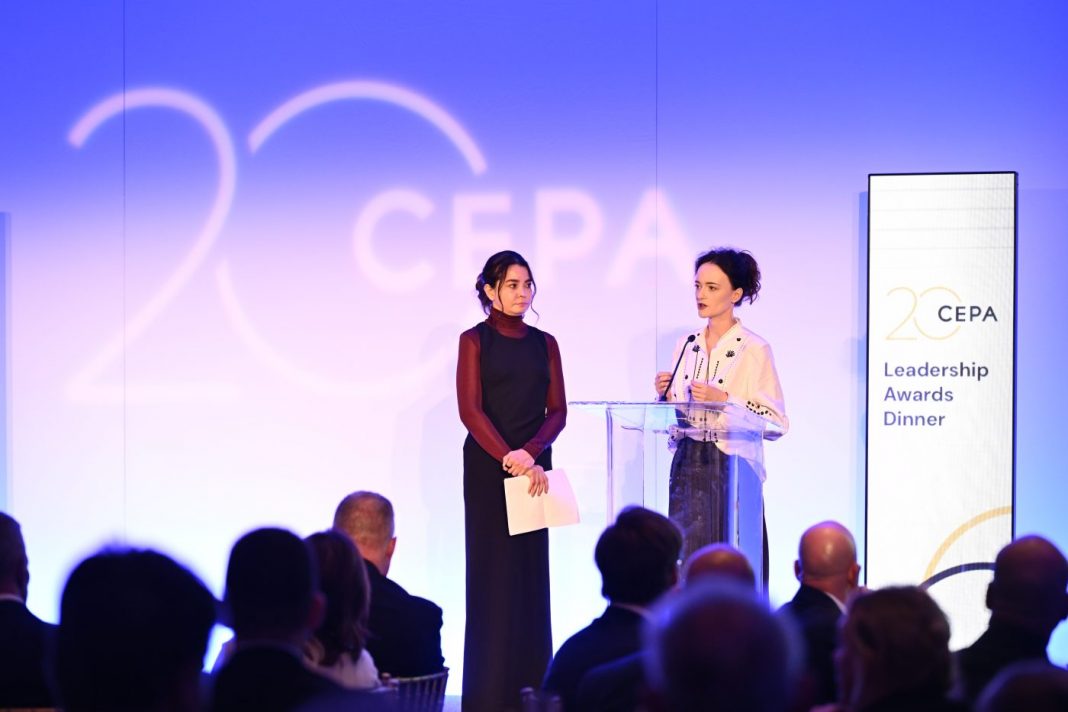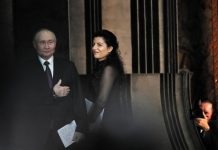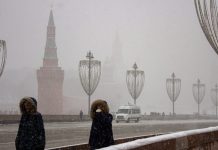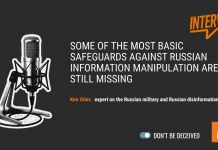Reporters working in Ukraine are being targeted by Russia because Vladimir Putin’s regime fears the truth, their editors say.
By Tom Penny, for CEPA
Olga Rudenko, editor-in-chief of the Kyiv Independent, and Sevgil Musaieva, editor-in-chief of Ukrayinska Pravda, told the annual CEPA Forum in Washington that their colleagues are on the frontline in a fight for democracy that must continue every day if the Kremlin and its propaganda machine are to be defeated.

Speaking as they received the CEPA Freedom Fighter Award for 2025, the two senior journalists told of colleagues who regularly risk their lives, and those who have been killed and maimed, as a result of their work to expose the brutality and extent of Russia’s war crimes.
“These are the people that are your eyes. These are the people who tell the story and who are really on the front line of this fight for the truth,” Rudenko said. “And you know who understands it really well? Who doesn’t need it to be explained? It’s Russia. Russia knows the importance of independent journalists, and that is why Russia targets them.”
The killing of French photojournalist Antoni Lallican, and wounding of his Ukrainian colleague Grigoriy Ivanchenko, in the Donetsk region on October 3, showed the Kremlin’s determination to silence the media, she told the audience.
“It was an attack that was done with a first-person view drone, and that means whoever was pressing the button knew who they were targeting. They saw the target, and they saw the press badges,” she said. “They knew that they were killing journalists, and they knew why they need to do that, because journalists are what stands between Russia and accountability.”
Musaieva told the awards dinner in Washington about her colleague Viktoriia Roshchyna, who was tortured and murdered by the Russians after being seized while reporting in the occupied territories.
Get the Latest
Sign up to receive regular emails and stay informed about CEPA’s work.
“When Viktoriia’s body was returned to Ukraine, it was so badly mutilated that it was unrecognizable,” she said. “And then we learned something even more horrifying, the Russians returned her body without her brain, without eyeballs, and without a trachea, trying to erase the traces of torture, trying to erase her.”
Determined that she shouldn’t be forgotten, a group of international journalists worked as a team to investigate and report the brutality of Roshchyna’s treatment and the systematic torture, rape, and killing of thousands of people captured by Russian forces.
“Sometimes listening to those testimonies, I would realize I couldn’t breathe,” Musaieva said. “It was the hardest story in my entire career, but it had to be told so the truth would not die, so that Viktoriia’s voice could live on.”

The work done by reporters is vital to ensure freedom and democracy can endure in the face of relentless hostility from their enemies,” she said.
“Democracy is not given once and forever. It doesn’t exist itself,” Musaieva said. “Democracy is daily work, a daily act of responsibility, of love, of support and of solidarity, a daily reminder of what truly matters, even when there are so many reasons to forget.”
Both journalists appealed for international support and for countries around the world to stand up for democracy and freedom in Ukraine, and for the right of reporters to do their work without being targets of dictatorial regimes.
“Independent journalism today has a lot of enemies, but it doesn’t have enough allies,” Rudenko said. “And it deserves to have more allies.”
By Tom Penny, for CEPA
Thomas Penny is an editor and writer based in London. He has worked for local, national, and international news organizations, including the Mail on Sunday, the Daily Telegraph, Bloomberg News, and CEPA, and is now a freelance specializing in international relations, politics, and conflict.
Europe’s Edge is CEPA’s online journal covering critical topics on the foreign policy docket across Europe and North America. All opinions expressed on Europe’s Edge are those of the author alone and may not represent those of the institutions they represent or the Center for European Policy Analysis. CEPA maintains a strict intellectual independence policy across all its projects and publications.





